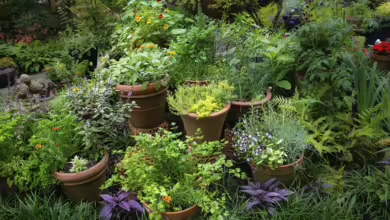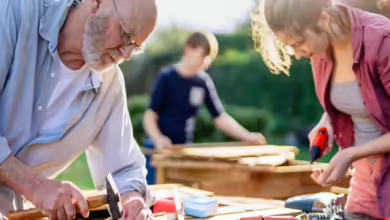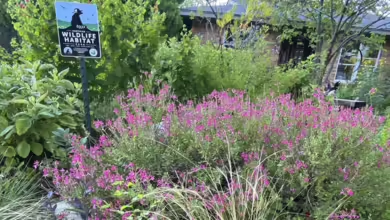Gardening Helps Grow Healthy, Happy Kids
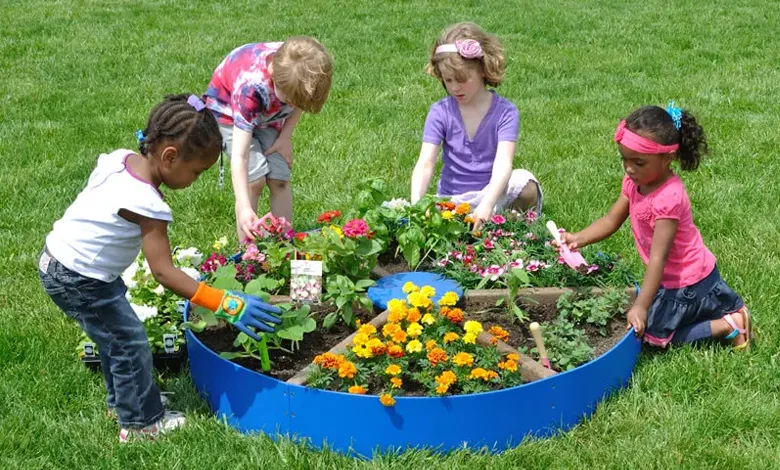
Gardeners know, and research proves that gardening, and even viewing a garden and spending time in nature, is good for the mind, body, and spirit. It improves strength and flexibility, lowers blood pressure, and elevates moods. This is also true for youngsters.
Recent studies found that school-aged children who participate in outdoor activities have better vision than those who spend most of their time indoors. Children who engage in nature and gardening are more focused, score better on exams, and are less likely to develop or exhibit symptoms of ADHD. And kids who play outside and get a bit dirty also have stronger immune systems.
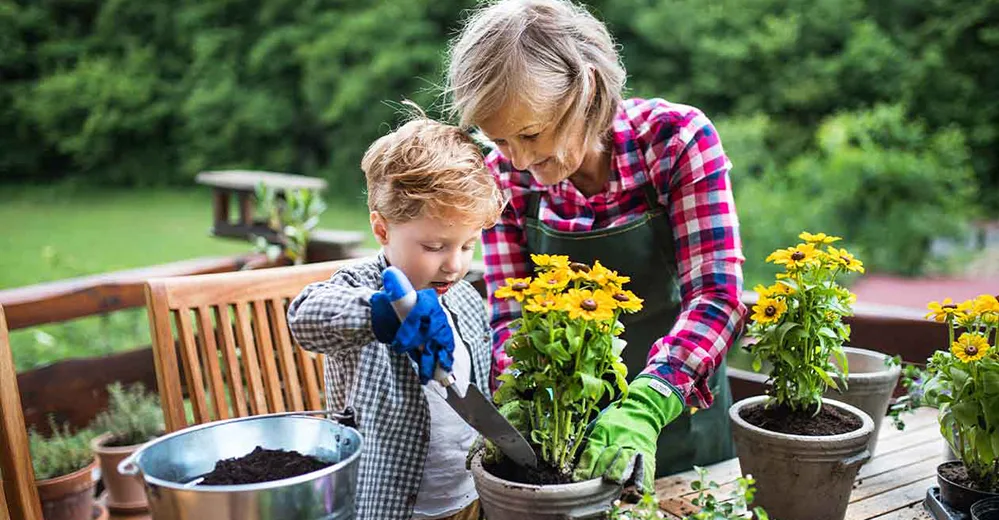
Grandkids and gardening
Help your grandkids get involved in gardening. There are various ways to get youngsters involved, no matter how much space or time you have. Consider giving each child a garden space or a container garden to design, plant, and tend. Containers are a great option when planting space and time are limited. And just about anything can be grown in a pot. An old 5-gallon bucket or washtub with holes drilled into the bottom, recycled nursery pots, or a colorful raised planter make great gardens.
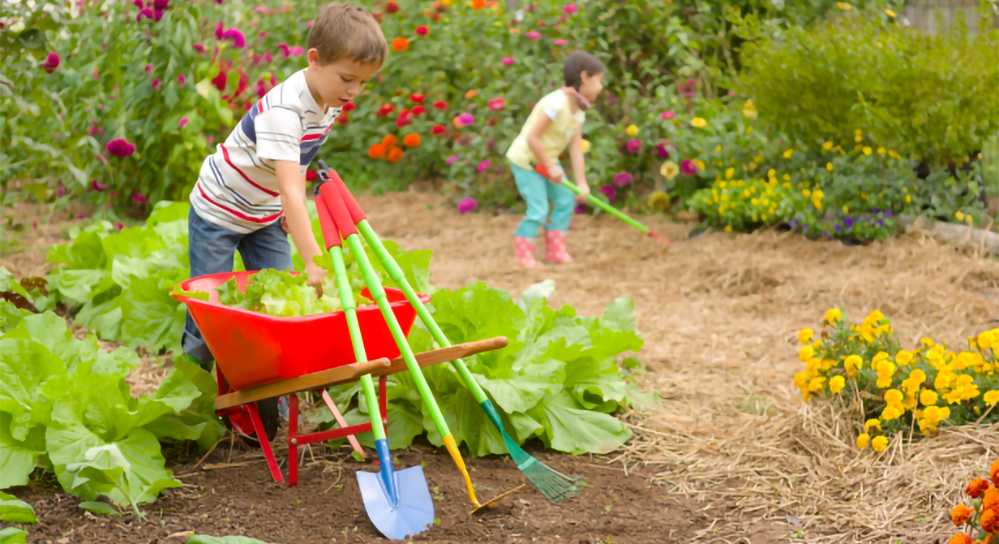
Special tools for special gardeners
Provide them with some kid-sized tools and equipment. The smaller scale of the tools will be easier to handle, and having their own tools that match yours makes gardening even more special. Encourage your little one’s love for gardening by investing in a set of kid-friendly gardening tools, including hand tools, long-handled tools, and a wheelbarrow.
Keep in mind the goal is for kids to have fun and develop an interest in gardening. You may need to bite your tongue if their combinations are a little unique or the plants are spaced improperly. Let them experiment and learn from their failures and successes. With time and your guidance, their skills will improve.
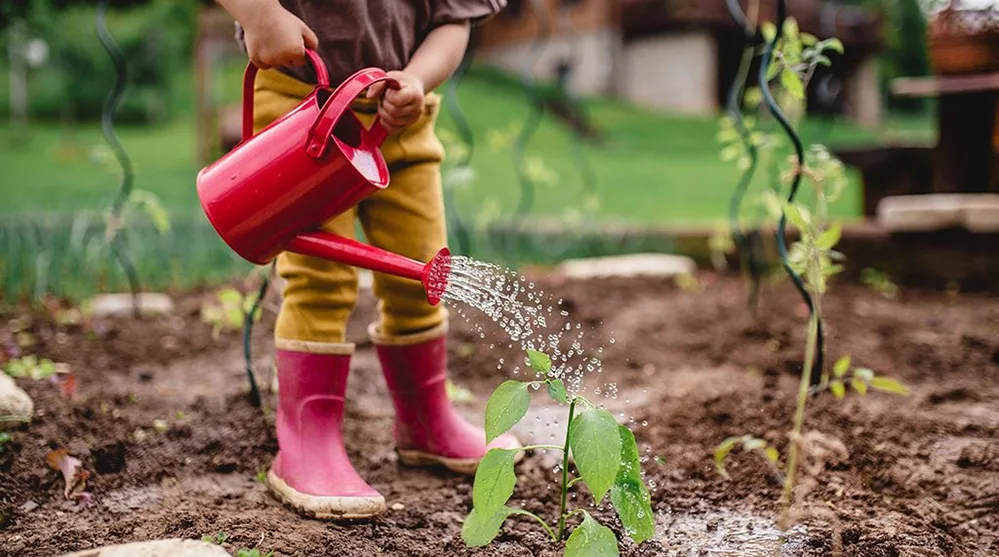
Kids and watering
Kids like to water even at an early age. The biggest challenge is getting the water to the plant, which will come with practice and a few water-soaked clothes. Your efforts will be rewarded when your grandchild takes over the watering of your container gardens.
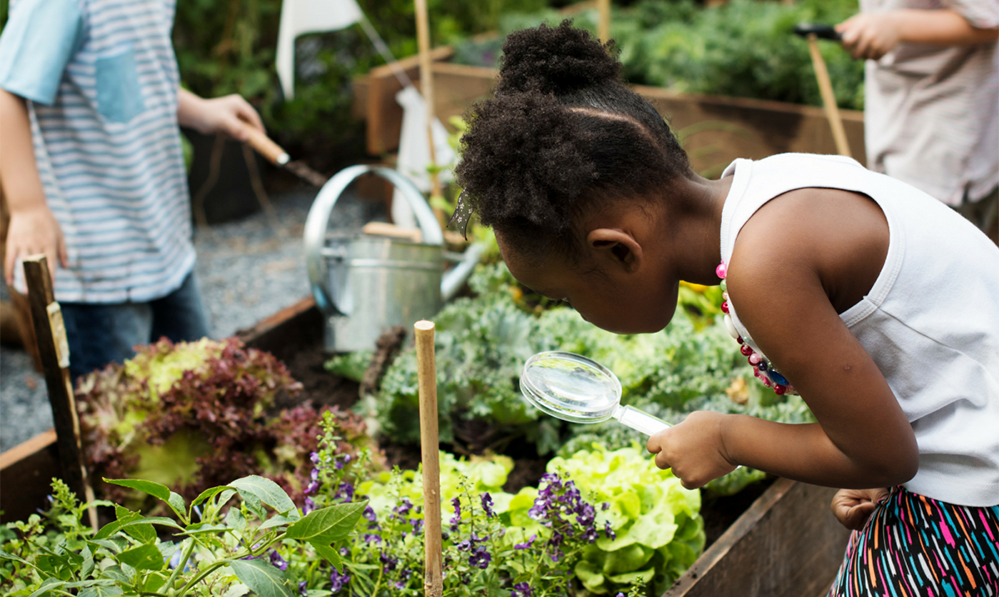
Bugs in the garden
You may notice kids often find bugs and worms more interesting than plants. Use this as a gateway into gardening. Get kids involved in worm composting or hunting for earthworms in the compost pile. They will have fun on the worm hunt while helping you turn your compost pile. Use the “Pluck, Drop, and Stomp” method to manage garden pests. Point out the bad guys and the damage they do.
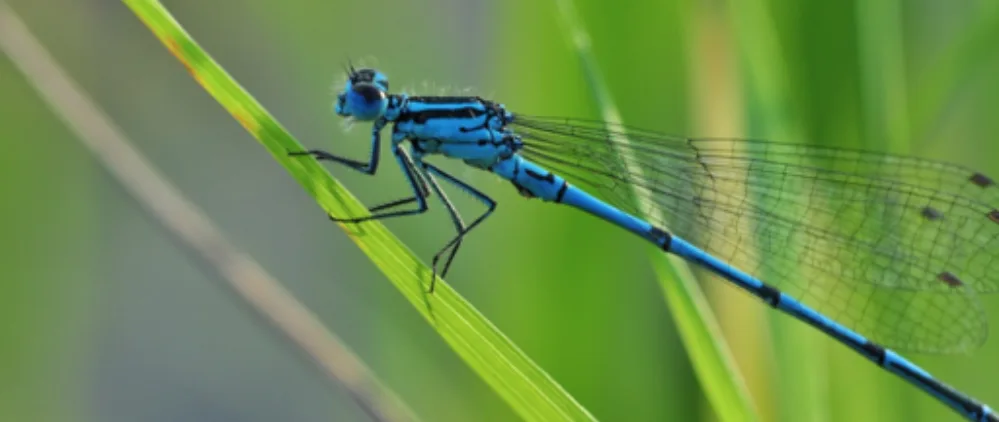
Be sure that early gardeners know to watch for the beneficial bugs, too, and leave them alone to help the garden grow. To learn more about good bugs, click HERE.
Teach your grandchildren about harmful bugs and how to manage them by using the “Pluck, Drop, and Stomp” method which involves picking the bugs off plants, dropping them to the ground, and stomping on them. This simple and eco-friendly strategy helps manage pests and also allows children to burn some of their excess energy.
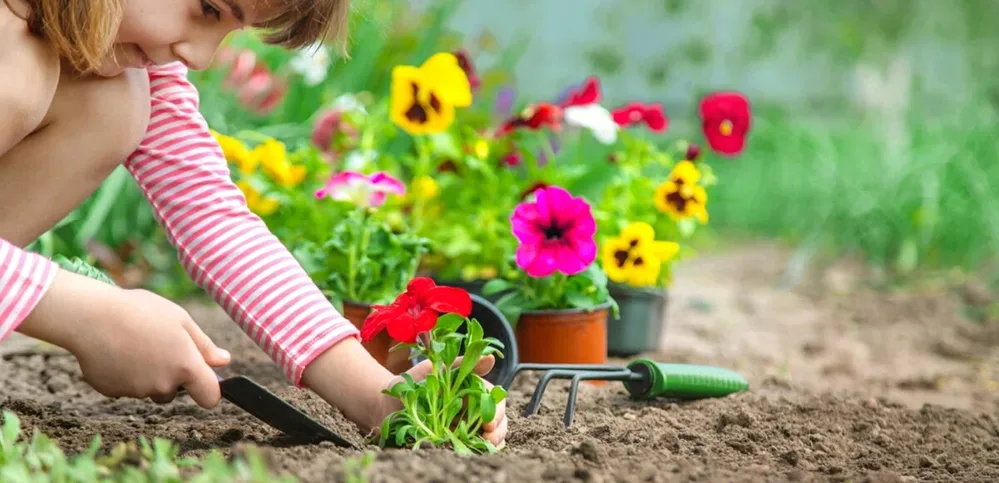
Colorful gardens are more appealing to children.
Michigan State University surveyed kids before creating their children’s garden. They found kids were much more excited and likely to participate when a garden is filled with color. And as the flowers are maturing and your family is overrun with vegetables, consider sharing the harvest and a few bouquets of flowers. Giving helps children grow into caring, well-rounded adults. And food pantries in your community are always in need of fresh produce. Most of the food-insecure people in our communities are kids and seniors who greatly benefit from fresh, nutritious vegetables.
At the end of the growing season, have some fun with a harvest party. Use your homegrown produce to prepare a picnic or fancy dinner for family and friends. Then, decorate the table with some of those beautiful flowers you grew.
Enjoy digging in the garden with your grandchildren.



